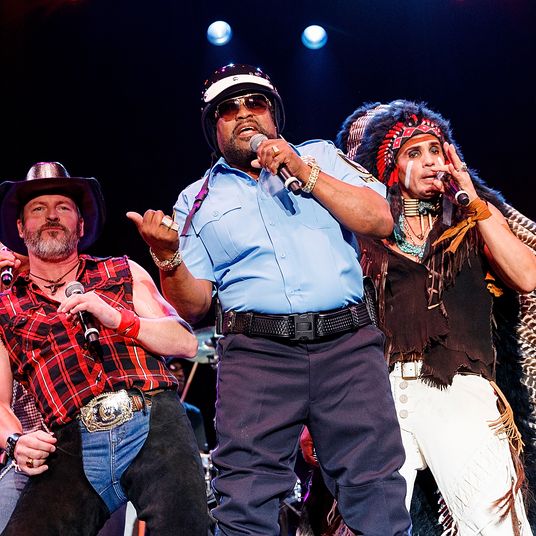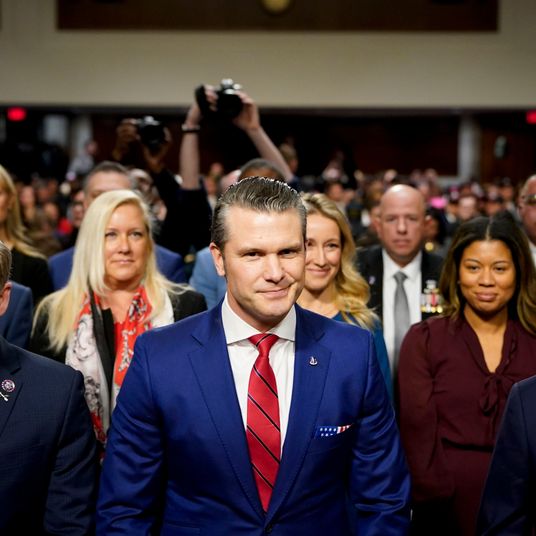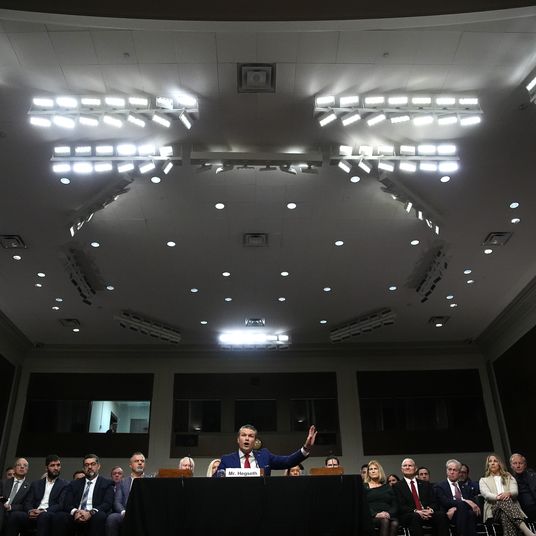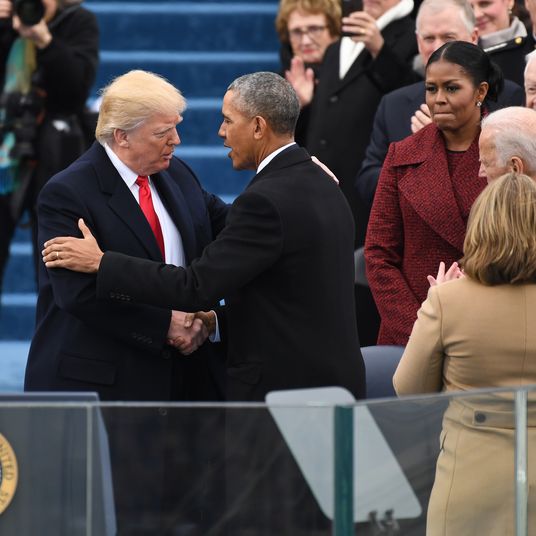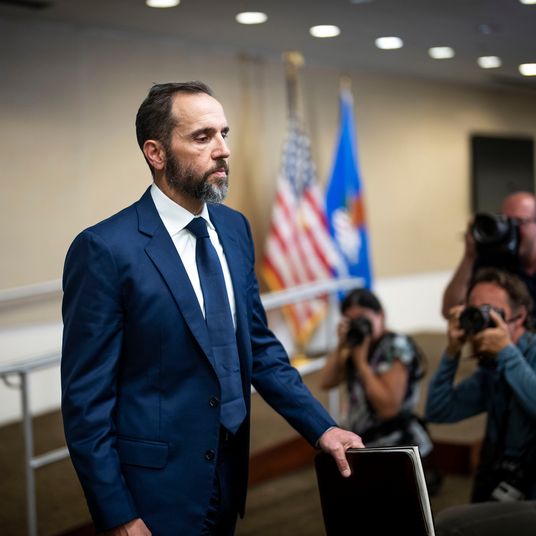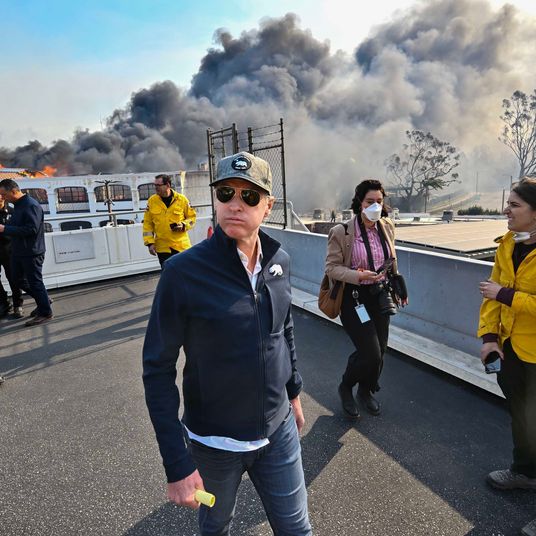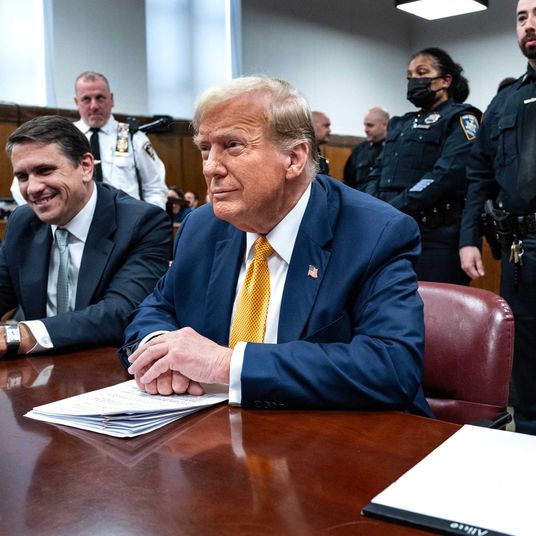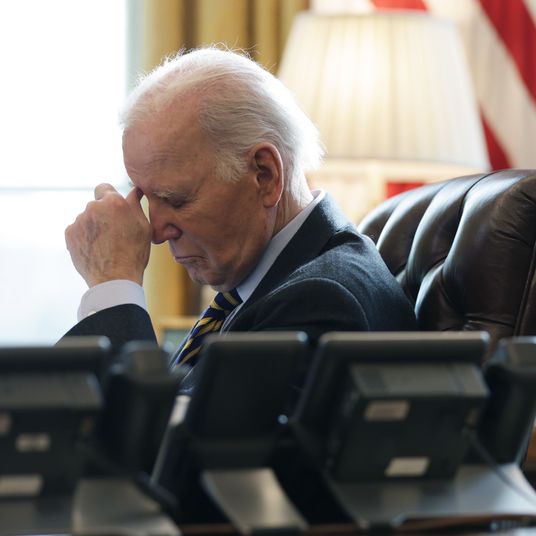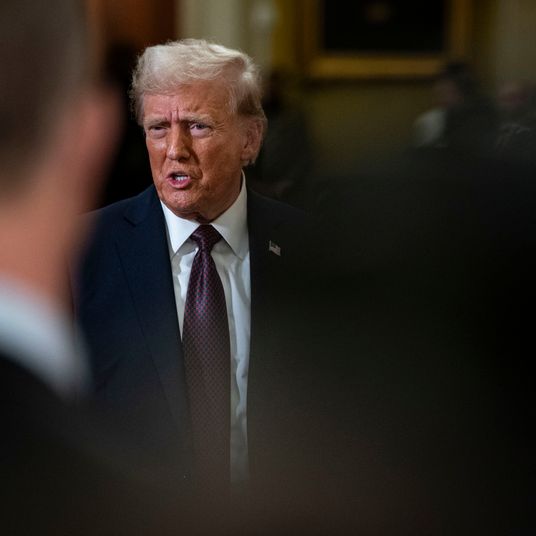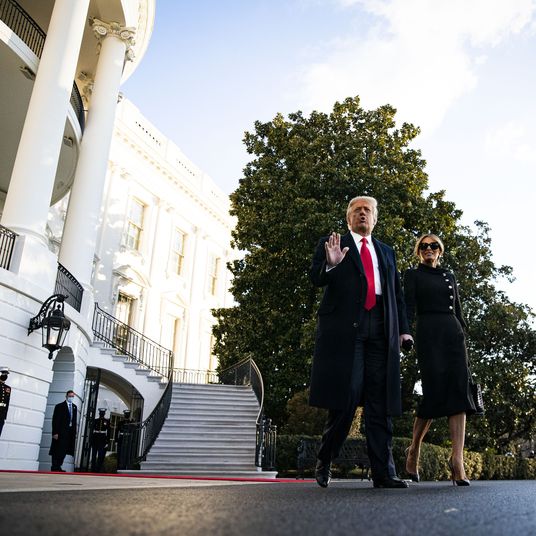
Photo: Getty Images
General Petraeus and Ambassador Crocker take their briefing to the House today, but the spotlight is gone — the presidential candidates have had their say and are off to judge pumpkin contests and read to the elderly. Yesterday the big three were afforded a rare chance to demonstrate (and not just bloviate about) how they’d each make the best commander-in-chief. But apparently the candidates were saving overt political opportunism for the campaign trail. Their questioning was serious, thoughtful, and dignified. In a word: commander-in-chief-y.
• Ryan Grim and John Bresnahan write that Clinton didn’t attack Petraeus “with the same vigor” as when they met last September, but she did take a shot at McCain. McCain, for his part, focused on what he foresees as the disastrous results of pulling out too soon, while Obama pushed for lowering expectations and a phased withdrawal. [Politico]
• Elizabeth Holmes believes Obama offered the toughest questions of the three candidates; Clinton was more cautious; and McCain was conscious of not sounding like a cheerleader, asking a few pointed questions about security in Iraq. [WSJ]
• Craig Crawford says Clinton was “surprisingly subdued” as though intentionally avoiding the appearance of using the hearings for political gain, although she offered some salient points and harsh criticisms. [CQ Politics]
• Janet Hook notes the Democrats were more “low-key and respectful” than they had been in September’s hearing, perhaps owing the greatly altered political context. [LAT]
• Matthew Yglesias writes that although Obama’s strength is a formal speech as opposed to a committee-hearing setting, he did a good job of “underscoring the ultimately hollow nature of the strategy being pursued currently in Iraq.” [Atlantic]
• Max Bergmann observes that Obama was able to hit Petraeus and Crocker very hard while remaining cordial, concluding that we have no definition of success in Iraq. [Democracy Arsenal]
• Jay Carney was very impressed with Clinton, who “fulfilled her oversight role” without grandstanding, and “made some soberly effective points” while demonstrating a “command of the facts.” [Swampland/Time]
• Eve Fairbanks thinks Obama was a success, able to sharpen the focus of what other senators “had been orbiting around” without showing their frustration. [Stump/New Republic]
• Elisabeth Bumiller notes that the candidates’ tempered performances reflected “the political risks of appearing too easy or tough on General Petraeus.” All adopted a somber, respectful tone. Obama excused Petraeus and Crocker from blame for the results in Iraq, and Clinton never “raised her voice or showed the passion” she had in September. [Caucus/NYT]
• Marc Ambinder says for the most part the candidates stuck to their stump speeches, but in addition, Clinton focused on senatorial concerns — will a military agreement with the Maliki government be put to a vote in the Senate? — while Obama concentrated on an end-game in Iraq. [Atlantic] —Dan Amira
For a complete and regularly updated guide to presidential candidates Hillary Clinton, Barack Obama, and John McCain — from First Love to Most Embarrassing Gaffe — read the 2008 Electopedia.





